Are you considering Custom LMS Development?
You’re not alone.
The e-learning industry is expected to reach USD 325 billion by 2025.
While there are many off-the-shelf LMS solutions available, they may not meet all of your organization’s unique needs.
That’s where custom LMS development comes in.
By building an LMS from scratch, you can tailor it to your organization’s specific requirements and provide a more personalized learning experience for your employees or students.
According to a survey by Capterra, 71% of LMS users say that user experience is the most important factor when selecting an LMS.
You can create your own LMS and ensure that the user experience is optimized for your organization’s needs.
So where do you start with custom LMS development?
In this blog, we’ll be discussing all LMS development from the definition, types, comparison, and much more.
With this out of the way, let’s get right into it:
What is Learning Management System Development?
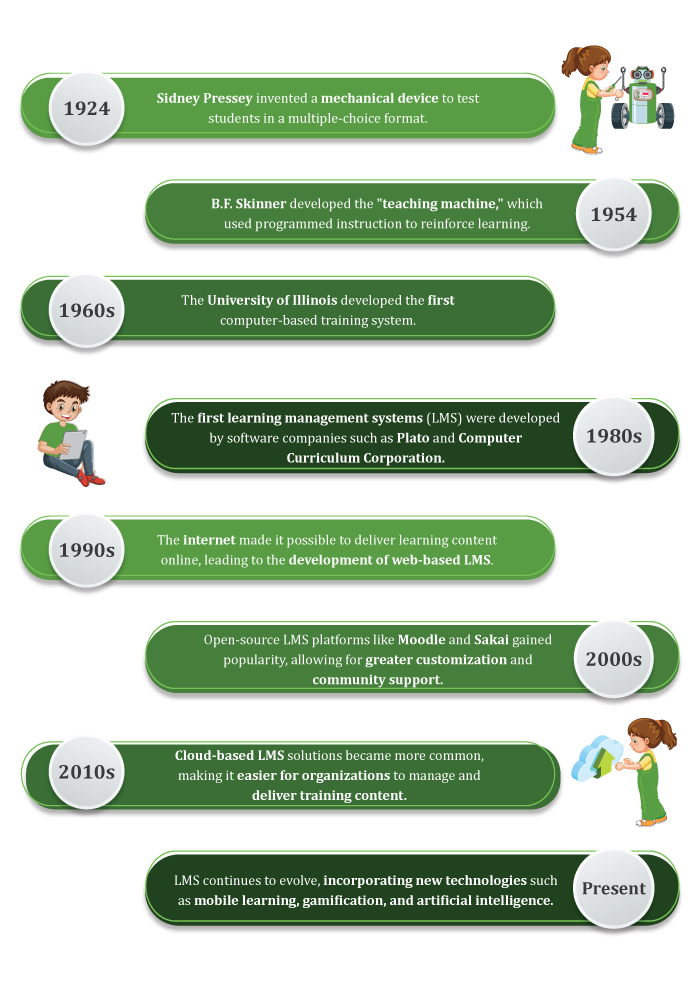
What is Learning Management System (LMS)?
LMS, as the name suggests, is online software that is based on the learning needs of individuals. The learning material on the platform can be accessed via the internet by users from any part of the world.
In addition to functionalities like digital classrooms and others that allow educators and students to connect, the platform also has other useful features.
However, LMS isn’t limited to schools or universities, it’s quite the opposite.
The main reason why custom LMS development is growing more and more popular is its use in the professional world.
LMS platforms are used by organizations, allowing their employees to acquire new skills, improve their current skills, and learn new things.
In fact, the LMS development trend is at its peak right now, since with technologies like the Internet, and electric devices i.e. phones, PCs, and laptop being easily available, eLearning has become that much more convenient.
Contrary to popular belief, an LMS system has been around for a long time now. Let’s take a dive into the history of the LMS platform.
Now that we know what this edtech app development solution is, let’s look at it’s history.
Learning Management System History
Learning management systems have been around for a long time now. For the better part of a century to be exact.
So, if you want to create an LMS from scratch, it’s a good idea to
- 1924– Sidney Pressey invented a mechanical device to test students in a multiple-choice format.
- 1954– B.F. Skinner developed the “teaching machine,” which used programmed instruction to reinforce learning.
- The 1960s– The University of Illinois developed the first computer-based training system.
- The 1980s– The first learning management systems (LMS) were developed by software companies such as Plato and Computer Curriculum Corporation.
- The 1990s– The internet made it possible to deliver learning content online, leading to the development of web-based LMS.
- The 2000s– Open-source LMS platforms like Moodle and Sakai gained popularity, allowing for greater customization and community support.
- The 2010s– Cloud-based LMS solutions became more common, making it easier for organizations to manage and deliver training content.
- Present– LMS continues to evolve, incorporating new technologies such as mobile learning, gamification, and artificial intelligence.
With this out of the way, you are probably wondering who is it for exactly. Let’s see in the section blog:
Who Needs LMS Platforms?
Before we get into LMS development, it’s a good idea that you figure out who is your target audience or end-user.
So, who can actually benefit from LMS software? Well, here are a few contenders.
Corporate Use Cases of LMS
- Customer Training
- Partner Training
- Supplier Training
- Employee Training
- Employees Development And Retention
- Employee Testing And Certification
- Sales Training
- Remote Work
- HR Solutions
Student Use Cases of LMS
- Accessing course material and resources online
- Completing and submitting assignments online
- Communicating with instructors and classmates
- Progress Tracking
- Group Collaboration
- Participating in online quizzes and exams
Now that you know who can use LMS systems, we are a step closer to a custom LMS development service.
Ready-Made LMS vs Custom LMS Development: Full Comparison
When you are looking for an LMS system, there are two major choices. You can either go buy a readymade LMS system or you can build your own LMS from Scratch.
So, should you go with custom LMS development services or buy one? Well, let’s compare them side by side.
| Factors | Ready-made LMS | Create an LMS from Scratch |
| Cost | Ready-made LMS is generally cheaper than creating an LMS from scratch. | Creating an LMS from scratch can be expensive due to development costs. |
| Implementation Time | Ready-made LMS can be implemented quickly. | Creating an LMS from scratch can take a long time. |
| Ease of Use | Ready-made LMS is user-friendly and requires little to no technical expertise. | Creating an LMS from scratch requires technical expertise and may not be as user-friendly. |
| Customization | Ready-made LMS allows for limited customization. | Creating an LMS from scratch allows for complete customization. |
| Maintenance and Support | Ready-made LMS typically comes with maintenance and support services. | Creating an LMS from scratch requires ongoing maintenance and support. |
| Scalability | Ready-made LMS may have limitations in scalability. | Creating an LMS from scratch can be designed to scale with the organization. |
Why Consider LMS Development? Benefits
Should you invest in custom LMS Development over a readymade one?
This is a question that bothers a lot of investors and companies. Well, there are some good reasons to create your own LMS.
Let’s look at some of the major benefits that come with Custom LMS development.
- Scalability in LMS Development services
- Flexibility of Operation
- Total Control and ownership of LMS
- Provides Better user engagement
- It’s cheaper in the long run
So, if you have decided that you want to create LMS software i.e. chose LMS software development over readymade one, you need a development partner.
So, how do you find developers? Here’s how.
How To Hire LMS Developers?
To create an LMS from scratch, you need a custom LMS development partner.
But the question is, how do you hire the right developers? Well, in this section of the blog, we shall be discussing all you need to know about this.
Type of Software Development Team You Can Hire
So, there are some different types of teams you can hire for LMS software development.
These are, as mentioned below:
- Freelancer Development
- Outsource Software Development Company
- Hybrid Team
Confused between in-house vs Outsourcing? You can read more about it Here.
Moving on, once you have selected which team you want to go with, here are a few ways to find potential custom LMS development partners.
How To Find LMS Developers?
Here are a few ways you can find custom learning management system development companies:
- Search on online job boards
- Freelancing websites like Fiverr, Freelancer, and Upwork.
- Use Social Media to find LMS development company
- Attend Tech Fairs
- Just Google It!
Things To Consider When Hiring LMS Developers
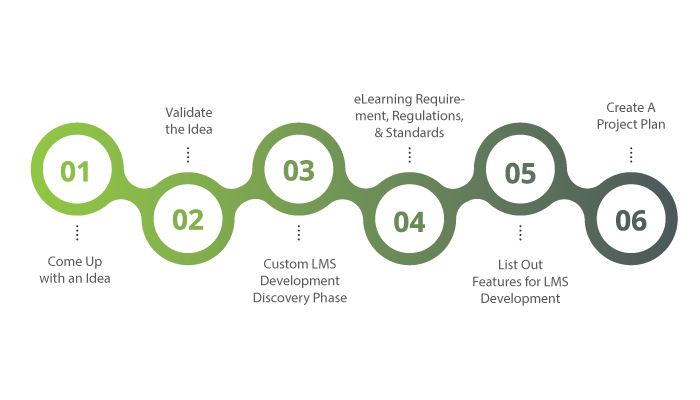
Before you hire dedicated developers for custom LMS development, there are a few things that you should consider.
These are, as mentioned below:
- Communication between your team and developer
- Location of the development team
- Cost to hire software developers
- Their experience in the field
- LMS developer’s track record
With an LMS development company by your side, it’s time to start development.
Things To Do Before Custom LMS Development
Before you create your own learning management system, there are some things that you need to take care of.
Let’s get right into it:
Come Up With An Idea: LMS Development Requirement Audit
The first thing you need is an Idea.
The idea or concept is the base for Custom LMS development. And this is very important considering the fact that 99% of businesses fail.
So, there are a few questions you should be asking here:
- What is the problem you are solving?
- How LMS will improve the process?
- Who is the target audience?
- How Do LMS Development solutions deliver value to users?
Once you have the idea, it’s time to validate it.
Validate The Idea
Now that you have an idea for LMS Development, it’s time to cross-check it.
Here are a few tips to use here:
- Physical survey according to principle 10 pains and 10 gains
- Read negative feedback on other LMS systems.
- Decompose the business plan and analyze it.
Apart from this, your LMS Development Company will also help you with this.
Custom LMS Development Discovery Phase
This is the discovery phase. And to say it’s important is an understatement.
So, what happens here:
Well, this is the part where you sit down with the LMS developers and focus on what users actually need and how you will deliver it to them.
It also includes extensive market research, competitor audit, and much more.
eLearning Requirement, Regulations, & Standards
This is one of the most important parts of preparing for custom LMS development.
When you create an LMS from Scratch, there are a few rules and regulations that you need to take care of.
Though this thing highly depends on your location, here are some that you need to look after if you are in the USA:
- Section 508 of the Rehabilitation Act
- Americans with Disabilities Act (ADA)
- General Data Protection Regulation (GDPR
- Health Insurance Portability and Accountability Act (HIPAA)
- Sharable Content Object Reference Model (SCORM)
List Out Features for LMS Development
Here are some essential features that you should include LMS software development:
- Course Management
- Assessment and Testing
- Collaboration Tools
- Mobile Compatibility
- Social Learning
- Content Authoring
- Security
- Multilingual Support
- Skill tracking
- Test and survey management
- Marketplace model
Create A Project Plan
With all said and done, it’s time to create a plan.
So, what are the things that you need to do in a plan? There are several when it comes to a complex process like Custom LMS development.
These are, as mentioned below:
- Sign NDA with developers
- Other Project documentation
- Choose A Tech Stack
- Choose software development methodology.
- Create a timeline and set a deadline
Once all of this is done, it’s time to develop a learning management system.
Let’s see how you do it in the next section of the blog.
Custom LMS Development: How To Create An LMS From Scratch.
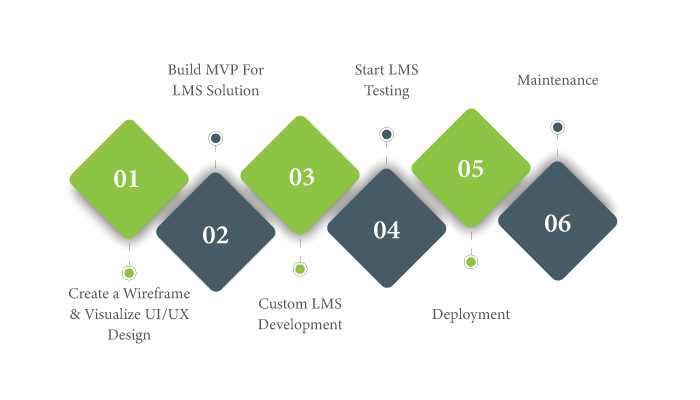
So, how do you create a LMS from scratch?
Custom LMS development is no rocket science. In fact, once you understand the process, it’s quite easy.
That’s why, here we shall be discussing the entire process to build a learning management system from scratch.
Let’s get right into it, starting with:
Create a Wireframe & Visualize UI/UX Design
The first thing you need to do is create a wireframe to visualize the design idea.
This is a core part of the development that helps the LMS developers and your business see what you are moving towards.
Build MVP For LMS Solution
Create a Minimum viable product.
It’s highly recommended that you create a minimum viable product for your LMS solution.
This is a bare-bone version of the LMS development which give you a glimpse of what the final product can be capable of.
Once this is done, it’s time to develop the final version of the software.
User Testing
Once the MVP is created, you can do a limited release and get user feedback.
Based on this feedback, you can further improve the process in LMS software development process.
Custom LMS Development
This is the part where custom LMS development takes place or in other words, you build a learning management system.
So, what happens here? well, there’s actually a lot going on here.
- Software architecture plan
- Sprints planning.
- Infrastructure setup for testing
- CI/CD to the test servers
- Client and server development & QA
- Regression Testing.
Once this is done, the LMS developer will take care of the Production Infrastructure setup and CI/CD to the prod servers.
Once all of this is done, it’s time to start testing the final product.
Start LMS Testing
LMS software testing is part of custom LMS development where the QA team will check the platform thoroughly for any bugs or errors.
Based on the software development methodology testing process may differ slightly. But the scope of this step remains the same.
Deployment
With all said and done, it’s time to deploy the LMS software.
Though this is not the final step of Custom LMS development, there’s one more.
Maintenance
To make sure the software adapts to the changing needs, LMS development services aren’t enough.
That’s why you need to go with maintenance and support services.
This is how you create your own learning management system from scratch with help of an LMS development company.
With this out of the way, let’s look at some of the trends that are shaping the online education solution development industry.
LMS Development Trends To Consider
LMS development is a part elearning industry. And this is an industry that’s booming with trends.
Let’s look at some trends that you can use when you create an LMS from scratch. These are, as mentioned below:
Gamification
We all know it’s easier to learn something when you are having fun doing it. Well, the concept of gamification is entirely based on it.
Mobile Learning
It is no secret that the majority of the world is using a mobile phone as a go-to device. With the mobile-first approach, LMS systems become mobile-compatible or develop an eLearning mobile app. Thus, making the solution that much more accessible.
Microlearning
MicroLearning is a concept that is becoming quite popular lately. So, how does this work? Well, in this type of learning, new information is provided to the student in small chunks, usually 10-minute sessions.
Artificial Intelligence Integration in Custom LMS Development
AI improves everything. With AI solution development you can develop a learning management system that is way better than the competition.
How much does it cost to build an LMS? Custom LMS Development Cost
So, how much does it cost to build an LMS from scratch?
Well, on average the cost usually ranges from $25,000 to $250,000.
But there are various factors that can affect the total cost. These factors range from the complexity of the LMS development to the location and experience of LMS developers.
How Long Does It Take To Create Your Own LMS From Scratch?
Creating your own LMS from scratch can be a daunting task, and the time it takes will depend on several factors, such as the complexity of the system and the resources available.
Here is a table summarizing the estimated time it takes to create an LMS from scratch:
| Task | Estimated Time |
| Planning and Research | 1-2 Weeks |
| Design and Development | 6-12 Weeks |
| Testing and Quality Assurance | 1-2 Weeks |
| Deployment and Launch | 1-2 Weeks |
| Total Time | 9-18 Weeks |
And with this we have come to the end of this blog.
Conclusion
This is how to develop LMS from Scratch. In this blog, we discussed all you need to know about Custom LMS development and other related things.
Now, if you want to create your own Learning management system, all you need to do is reach out to LMS development company.
FAQ
LMS software development involves designing and creating Learning Management System software, which is a platform that allows organizations to deliver and manage online learning programs.
The stages in LMS development are:
- Planning:Involves defining the project scope, goals, and requirements.
- Design: Involves creating the user interface, wireframes, and architecture.
- Development: Involves coding, testing, and integrating the system with other platforms.
- Deployment: Involves launching the system to the end-users.
- Maintenance: Involves fixing bugs, updating software, and providing technical support.
Yes, you can create your own LMS. However, it requires a team of skilled developers, designers, and project managers to successfully create an LMS.
The cost of building an LMS depends on various factors, such as:
- Size and complexity: The more features and functionality an LMS has, the more expensive it will be to develop.
- Development team: The cost of hiring developers, designers, and project managers can vary depending on their level of experience and location.
- Technology stack:The cost of using different technologies, such as hosting, database, and programming languages, can vary.
- Timeline: The longer the development timeline, the more expensive it will be.
The cost of building an LMS can range from a few thousand dollars to millions of dollars.

Niketan Sharma is the CTO of Nimble AppGenie, a prominent website and mobile app development company in the USA that is delivering excellence with a commitment to boosting business growth & maximizing customer satisfaction. He is a highly motivated individual who helps SMEs and startups grow in this dynamic market with the latest technology and innovation.
Table of Contents









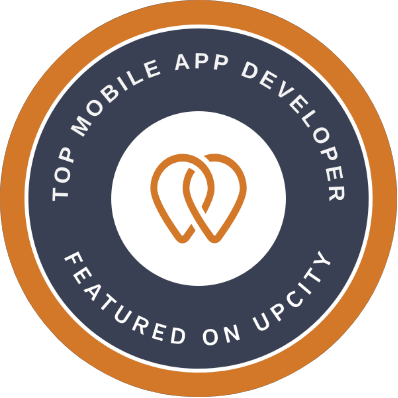

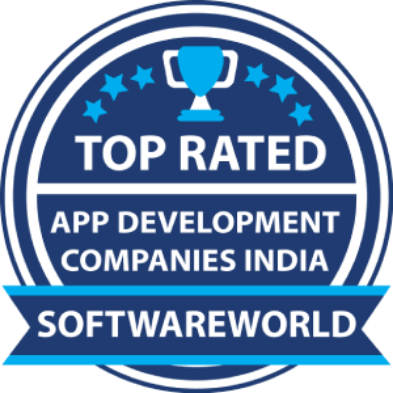
No Comments
Comments are closed.